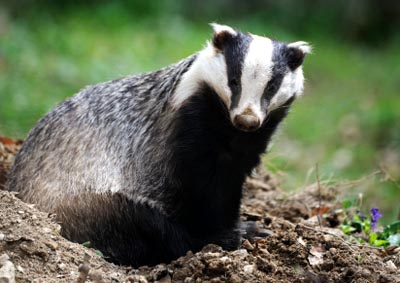Badger culls to be improved
Badger culls must become more efficient before they are rolled out to other areas affected by bovine TB


Improvements are to be made to the way the pilot badger culls are being carried out in Gloucestershire and Somerset before the system can be rolled out to other areas affected by bovine TB next year. This follows criticism of some aspects of the culls by an Independent Expert Panel, whose report was officially published last week.
It says that marksmen's levels of accuracy must improve, they need more training and that contractors must be more efficient- however, Defra points out that workers were operating in ‘the face of a sustained campaign of harassment and intimidation'. The report, which centred on the methodology of the cull, not its necessity, also recognises the near-impossibility of accurately estimating wild animal populations and suggests that pre-cull targets may not be necessary.
New measures by Defra include giving farmers in the cull areas bespoke advice on protecting their farms from the disease. Private individuals can apply for grants to vaccinate badgers on the borders of areas affected by bovine TB.
A new cattle vaccine may be field tested next year and an oral vaccine for badgers could be available by 2019. ‘Doing nothing is not an option,' says Defra Secretary of State Owen Paterson. ‘Bovine TB is a terrible disease that is devastating our cattle and causing misery in rural communities.'
The NFU and CLA have expressed disappointment that further culls can't take place more quickly. Last year, 4,815 new herds were infected with TB and 32,620 cattle slaughtered.
* Subscribe to Country Life and save
* Follow Country Life magazine on Twitter
Exquisite houses, the beauty of Nature, and how to get the most from your life, straight to your inbox.
Country Life is unlike any other magazine: the only glossy weekly on the newsstand and the only magazine that has been guest-edited by His Majesty The King not once, but twice. It is a celebration of modern rural life and all its diverse joys and pleasures — that was first published in Queen Victoria's Diamond Jubilee year. Our eclectic mixture of witty and informative content — from the most up-to-date property news and commentary and a coveted glimpse inside some of the UK's best houses and gardens, to gardening, the arts and interior design, written by experts in their field — still cannot be found in print or online, anywhere else.
